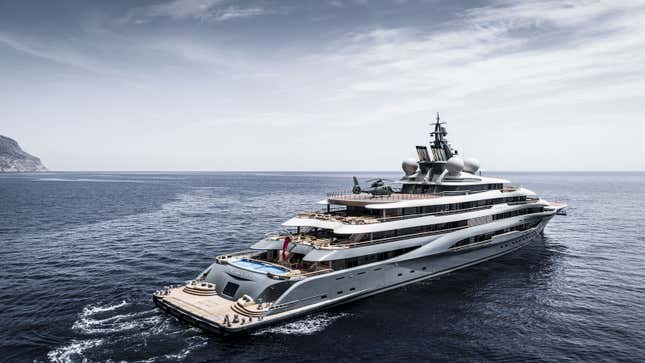
It may come as no surprise to you that wealthy people and multi-billion dollar corporations will do whatever it takes to skirt paying taxes or following regulations of any kind. So what do you think happens when they spend half a billion dollars on a megayacht? Obviously paying taxes on something you purchased would be too onerous, especially when it can be subverted by just flying another nation’s flag. It’s just a flag, right? Who cares? Your lifestyle is more important than paying taxes or silly things like safety inspections.
Many boat owners, including the three big cruise industry players, choose to register vessels in countries they never actually visit. This is done to avoid taxes, environmental laws, worker safety regulations, and higher wages for crew members. If you’re registered in The Cayman Islands, for example, but you do all of your sailing from Miami or San Diego, you don’t have to follow U.S. regulations, pay U.S. taxes, or sit through U.S. inspections.
According to the so-called ultimate yacht registration guide, a non-commercial pleasure yacht registered in the Cayman Islands “benefits from all of the privileges of the British flag, while simultaneously having the tax-free and confidentiality perks of the Cayman Islands.” It will also receive the protection of the British Royal Navy in the case of piracy.
Like the Cayman Islands, Panama is a popular spot with billionaires looking to hide their wealth and register their yachts. If you’re non-Panamanian, it costs a flat fee of just $1500 to register your ship in Panama. There are no taxes paid to Panama, and the country doesn’t even require you to dry dock your ship for registration inspection, meaning it’s a rapid and inexpensive process.
These registration schemes are handy for Russian oligarchs looking to hide their property from seizure, or massive cruise ship companies looking to dump their waste in international waters to save on costs. Flags of convenience are tax haven scams that are harming the environment, workers, and the world. It’s about time ships like these were subject to more strict maritime law.

